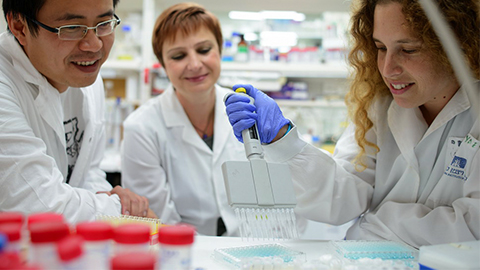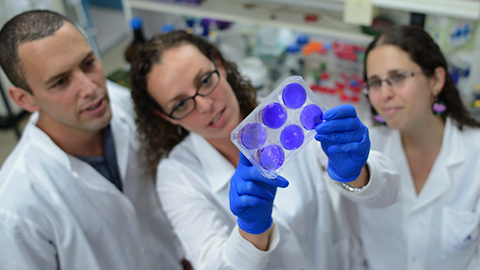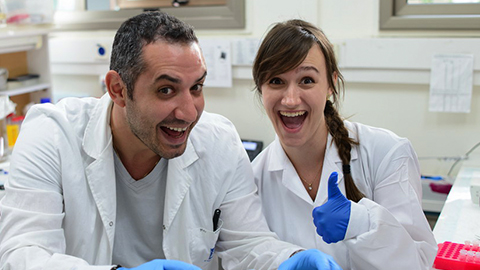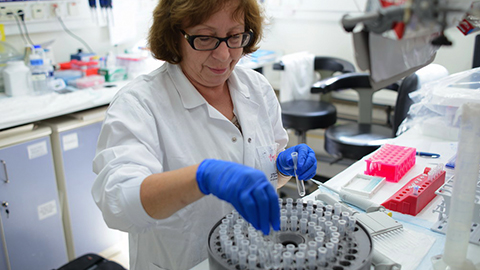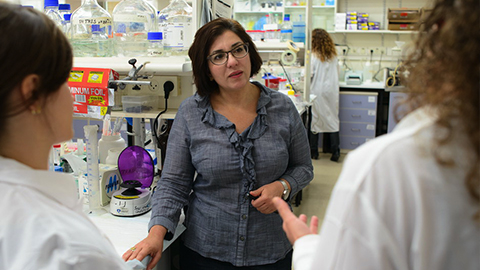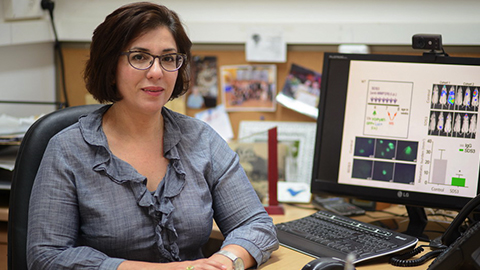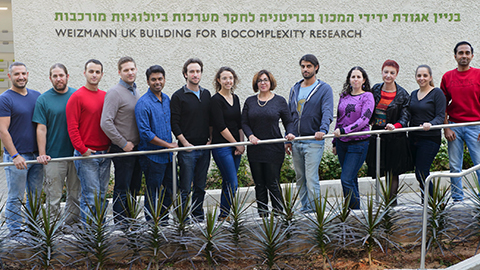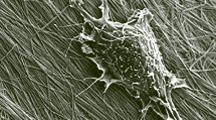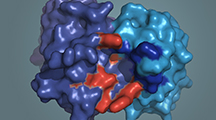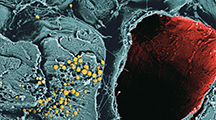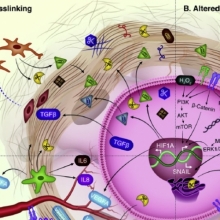Tissue remodeling - from biophysical principles to drug design
A multidisciplinary approach to study the extracellular matrix
While most biological research focuses on what goes on inside the cell, we look at what is happening on the outside. Our lab studies the cellular microenvironment, which includes the extracellular matrix (ECM) – a collection of secreted molecules (e.g., collagens, glycoproteins, proteoglycans, growth factors, cytokines etc.) that provide both chemical and mechanical stimuli affecting cellular behavior. Remodeling of the ECM is a key process in both health and disease, and is executed by remodeling enzymes, such as MMPs, ADAMs and LOXs, designating them as attractive therapeutic targets.
Our research aims to decipher molecular remodeling mechanisms that dictate cell behavior in various physiological and pathological scenarios. To accomplish this, we utilize a multidisciplinary integrated research approach, working with a wide range of methods. We apply a unique biochemical drug design approach for development of selective enzyme inhibitors, use a variety of animal and cellular models, as well as apply systems and molecular biology tools, immunological methods and advanced imaging techniques. These allow us to decipher the multidimensional ECM code in terms of structure, composition, biomechanics and biological function. The mechanistic insights derived from our research enable us to design therapeutic and diagnostic tools, some of which are currently being developed for clinical uses.


